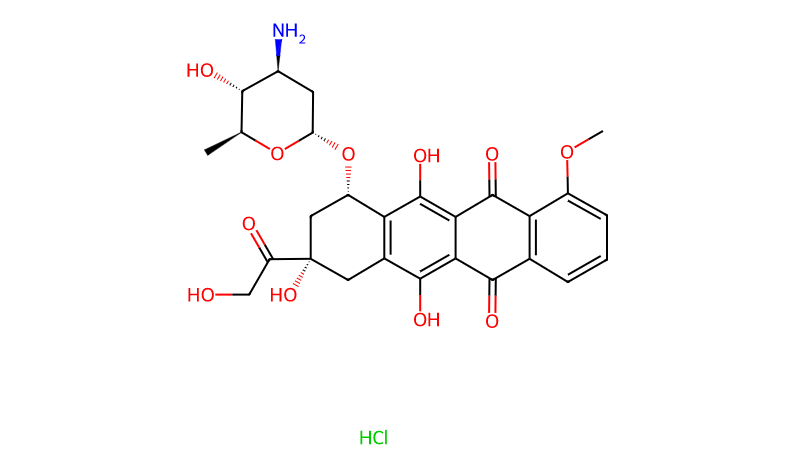- Synthetic anti-infective drugs
- Medications for the digestive system
- Antipyretic and analgesic drugs
- Medications for the blood system
- Medications for the respiratory system
- Anti-allergic drugs
- Medications for the urinary system
- Diagnostic medications
- Immunosuppressive and immunomodulatory drugs
- Vitamins and mineral supplements
- Antioxidants and medications for osteoporosis
- Antiparasitic drugs
- Ophthalmic medications
- Amino acids and their derivatives
- Dermatological medications
- Medications for the circulatory system
- Antitumor drugs
- Medications for the nervous system
- Hormonal and endocrine function-regulating drugs
- Antibiotics
- Others
CAS Number: 56390-09-1




Basic Information
Product Name: Epirubicin Hydrochloride
CAS Number: 56390-09-1
Chemical Formula: C27H30ClNO11
Molecular Weight: 579.98 g/mol
Appearance: Orange-red crystalline solid (or powder, depending on the form)
Physical and Chemical Properties
Density: 1.61 g/cm³
Boiling Point: 810.3 ºC at 760 mmHg
Melting Point: 185 ºC dec
Flash Point: 443.8 ºC
Refractive Index: 1.709
Solubility: Soluble in DMSO and water (with heating or sonication)
Stability: Stable if used and stored according to specifications. No known dangerous reactions.
Pharmacological Properties
Mechanism of Action: Epirubicin hydrochloride exerts its antitumor effects by forming a complex with DNA, resulting in DNA damage and interference with the synthesis of DNA, RNA, and proteins. It also inhibits topoisomerase, which is crucial for DNA replication and repair.
Antitumor Activity: Epirubicin hydrochloride demonstrates broad-spectrum antitumor activity against various types of cancer cells, including breast cancer, lymphoma, sarcoma, lung cancer, and others.
Applications
Therapeutic Use: Epirubicin hydrochloride is used in the treatment of various types of cancer, including breast cancer, malignant lymphoma, soft tissue sarcoma, lung cancer, pleural mesothelioma, gastrointestinal cancer, head and neck cancer, ovarian cancer, prostate cancer, and bladder transitional cell carcinoma.
Dosage and Administration: The dosage and administration schedule are determined by the physician based on factors such as the patient's body weight, cancer type, and overall health condition. It is typically administered intravenously.

Tai Yau Street, San Po Kong, Kowloon, Hong Kong, China.



